I have tried some code in Java 8 (1.8.0_77) and Java 9 (Java HotSpot(TM) 64-Bit Server VM (build 9+181, mixed mode))
DateTimeFormatter dtf = DateTimeFormatter.ofPattern("eee", Locale.GERMAN);
DayOfWeek mo = dtf.parse("Mo", DayOfWeek::from);
System.out.println("mo = " + mo);
I am not too familiar with details of those classes, but in Java 8 this works, printing:
mo = MONDAY
In Java 9, however it fails
Exception in thread "main" java.time.format.DateTimeParseException: Text 'Mo' could not be parsed at index 0 at java.base/java.time.format.DateTimeFormatter.parseResolved0(DateTimeFormatter.java:1988) at java.base/java.time.format.DateTimeFormatter.parse(DateTimeFormatter.java:1890) at day.main(day.java:10)
Any ideas, is this reproducible?
so, when formating: using this code:
DateTimeFormatter dtf = DateTimeFormatter.ofPattern("eee", Locale.GERMAN);
String format = dtf.format(DayOfWeek.MONDAY);
System.out.println("format = " + format);
jdk1.8.0-77:
format = Mo
jdk-9 (build 9+181)
format = Mo.
